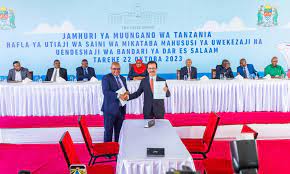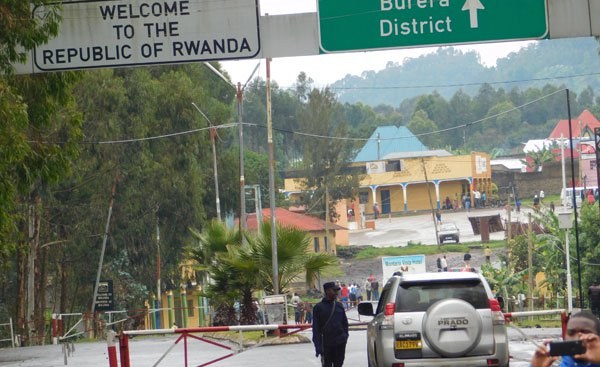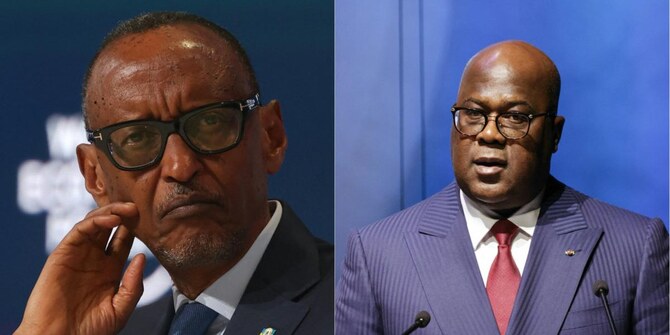Tanzania’s government has signed a 30-year port management agreement with Dubai-based logistics firm DP World, hoping the deal would boost exchanges with landlocked neighboring countries and reduce unloading times at the country’s largest port.
The Dar es Salaam port in Tanzania will soon be modernized amid a 30-year concession agreement with the Emirati logistics giant that was inked in the presence of the country’s President Samia Suluhu Hassan on Sunday (22 October). The multimillion-dollar deal looks set to further entrench the dominance of the United Arab Emirates (UAE) in Africa’s freight industry.
Tanzania Ports Authority immediately sought to allay any concerns by announcing that DP World will only operate four berths of the port, located in the country’s financial capital, and not the entire port, with its performance to be reviewed every five years. But the opposition and civil society have still protested the government decision to have a foreign logistics company manage Tanzania’s ports, with more than 22 people having been arrested so far, according to Amnesty International.
“The development (of the port) will deliver trade opportunities for the region, connecting East Africa and broader sub-Saharan Africa with global markets, driving economic growth, job creation, enhanced access to products and service, and creating value for all our stakeholders,” said DP World Group Chairman and CEO Sultan Ahmed bin Sulayem.
However, the reports of the $250m deal that first emerged in July sparked criticism by the opposition that it “violated Tanzania’s constitution and endangers national sovereignty”. Chronic inefficiency, corruption allegations and competition in freight management by neighboring Kenya are some of the underlying reasons that led Tanzania’s government to sign off on the agreement.
Established and owned by Emirati ruling families, DP World has in recent years increased inroads in Africa with port operations in Angola, Djibouti, Egypt, Morocco, Mozambique, Senegal, and Somalia, at times sparking tensions and testing geopolitical relations across Africa.



